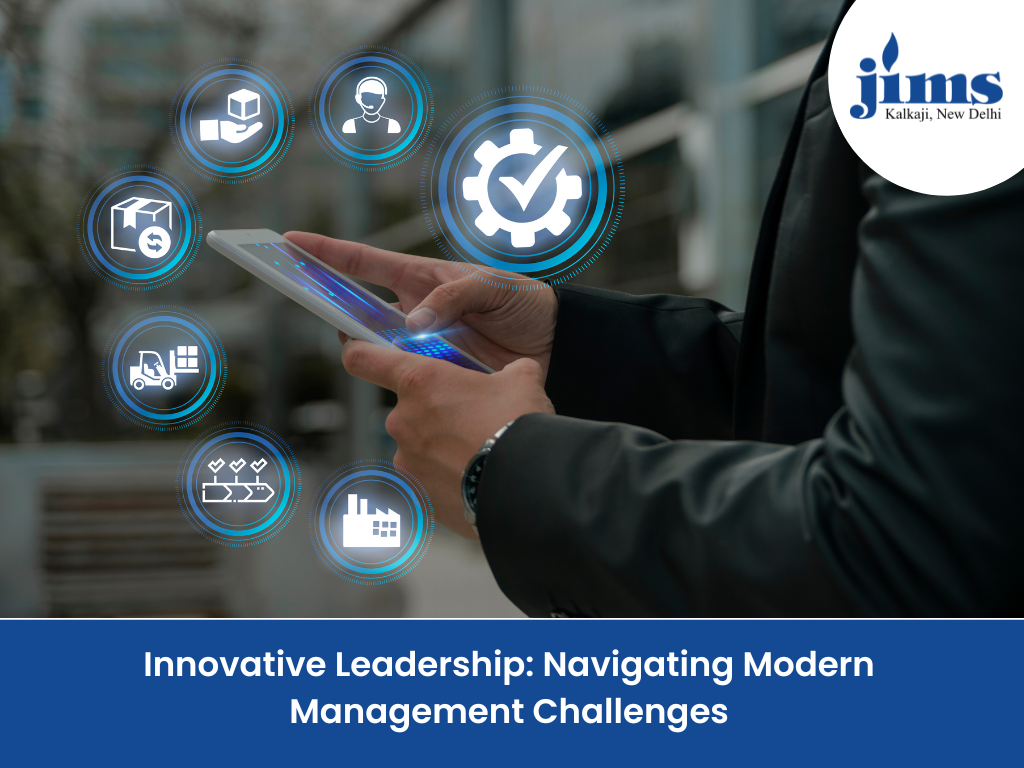Introduction
In the ever-evolving landscape of business, the role of a leader is not just to manage but to innovate. As we face unprecedented challenges in the 21st century, from technological disruption to a global pandemic, the need for innovative leadership has never been more critical. This article explores the essence of innovative leadership and how it can guide organizations through modern management challenges. Institutions like JIMS, Kalkaji, one of the top mba college in Delhi have recognized the importance of this shift and are at the forefront of nurturing leaders who can thrive in this dynamic environment.The Landscape of Contemporary Management
The world of business today is characterized by rapid change and complexity. Two major forces driving this change are globalization and technological advancement. Globalization has led to a more interconnected world, creating opportunities and challenges in managing diverse teams and international markets. On the other hand, technology, particularly digital transformation, has disrupted traditional business models, necessitating leaders to be agile and forward-thinking.
Innovative Leadership Defined
Innovative leadership is about thinking and acting differently. It involves a mindset that challenges the status quo and seeks new ways of doing things. This leadership style is not confined to top management; it can manifest at all levels of an organization. Innovative leaders are characterized by their ability to adapt, envision the future, and foster a culture of creativity and risk-taking.
Navigating Management Challenges with Innovation
Embracing Digital Transformation
One of the most significant challenges modern managers face is digital transformation. Innovative leaders must not only understand the latest technologies but also how to integrate them into their business models. This requires a balance between technological expertise and strategic foresight.
Managing a Diverse and Remote Workforce
The rise of remote work and increasingly diverse workforces presents another challenge for today’s leaders. Innovative leadership in this context means being able to effectively manage teams across different cultures and geographies, often remotely. It calls for excellent communication skills, cultural sensitivity, and the ability to build trust without face-to-face interaction.
Leading through Uncertainty
In times of crisis, such as the recent global pandemic, leaders face the challenge of steering their organizations through uncertainty. Innovative leaders shine in these situations by being resilient, adaptable, and communicative. They are skilled at crisis management, making quick but informed decisions, and communicating these decisions transparently to their teams.
Strategies for Innovative Leadership
Fostering a Culture of Innovation
Innovative leaders know that a culture of innovation is key. This involves creating an environment where new ideas are encouraged and failure is seen as a learning opportunity. It means empowering employees, giving them the autonomy to experiment and take risks.
Continuous Learning and Adaptation
Innovative leaders are lifelong learners. They stay abreast of industry trends, technological advancements, and best practices. This continuous learning helps them adapt their strategies to meet the evolving needs of their business and workforce.
Collaborative Problem-Solving
Innovation often stems from collaboration. Leaders today should foster a collaborative environment where teams can work together to solve complex problems. This approach not only leads to more innovative solutions but also builds a stronger, more cohesive team.
Conclusion
The role of leadership in the modern business environment is complex and demanding. JIMS, Kalkaji being one of the best mba college in Delhi understand that innovative leadership is the key to navigating these challenges successfully. By embracing change, fostering a culture of innovation, and continuously learning, leaders can guide their organizations through the uncertainties of the 21st century. Programs and initiatives at JIMS, Kalkaji are designed to equip emerging leaders with these skills, ensuring their relevance and success in an ever-changing world.

